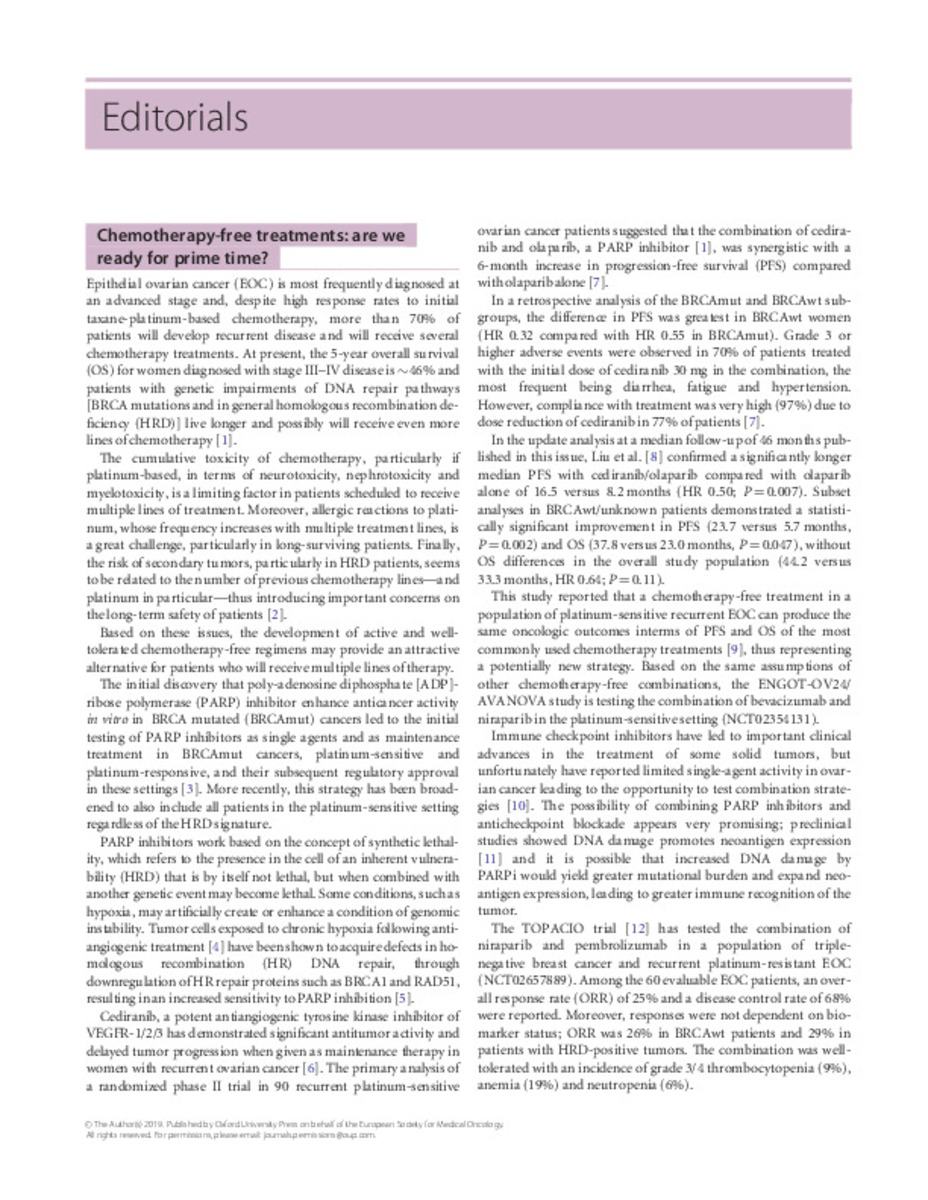Full metadata record
| DC Field | Value | Language |
|---|---|---|
| dc.creator | Lorusso, D. (D.) | - |
| dc.creator | Pignata, S. (S.) | - |
| dc.creator | González-Martín, A. (Antonio) | - |
| dc.date.accessioned | 2021-11-18T09:24:15Z | - |
| dc.date.available | 2021-11-18T09:24:15Z | - |
| dc.date.issued | 2019 | - |
| dc.identifier.citation | Lorusso, D. (D.); Pignata, S. (S.); González-Martín, A. (Antonio). "Chemotherapy-free treatments: are we ready for prime time?". Annals of Oncology. 30 (4), 2019, 497 - 498 | es_ES |
| dc.identifier.issn | 0923-7534 | - |
| dc.identifier.uri | https://hdl.handle.net/10171/62599 | - |
| dc.description.abstract | Epithelial ovarian cancer (EOC) is most frequently diagnosed at an advanced stage and, despite high response rates to initial taxane-platinum-based chemotherapy, more than 70% of patients will develop recurrent disease and will receive several chemotherapy treatments. At present, the 5-year overall survival (OS) for women diagnosed with stage III–IV disease is 46% and patients with genetic impairments of DNA repair pathways [BRCA mutations and in general homologous recombination deficiency (HRD)] live longer and possibly will receive even more lines of chemotherapy. | es_ES |
| dc.language.iso | eng | es_ES |
| dc.publisher | Elsevier BV | es_ES |
| dc.rights | info:eu-repo/semantics/openAccess | es_ES |
| dc.subject | Chemotherapy | es_ES |
| dc.subject | Epithelial ovarian cancer (EOC) | es_ES |
| dc.subject | Genetic impairments | es_ES |
| dc.subject | DNA | es_ES |
| dc.title | Chemotherapy-free treatments: are we ready for prime time? | es_ES |
| dc.type | info:eu-repo/semantics/article | es_ES |
| dc.identifier.doi | 10.1093/annonc/mdz079 | - |
| dadun.citation.endingPage | 498 | es_ES |
| dadun.citation.number | 4 | es_ES |
| dadun.citation.publicationName | Annals of Oncology | es_ES |
| dadun.citation.startingPage | 497 | es_ES |
| dadun.citation.volume | 30 | es_ES |
Files in This Item:
Statistics and impact
Items in Dadun are protected by copyright, with all rights reserved, unless otherwise indicated.






